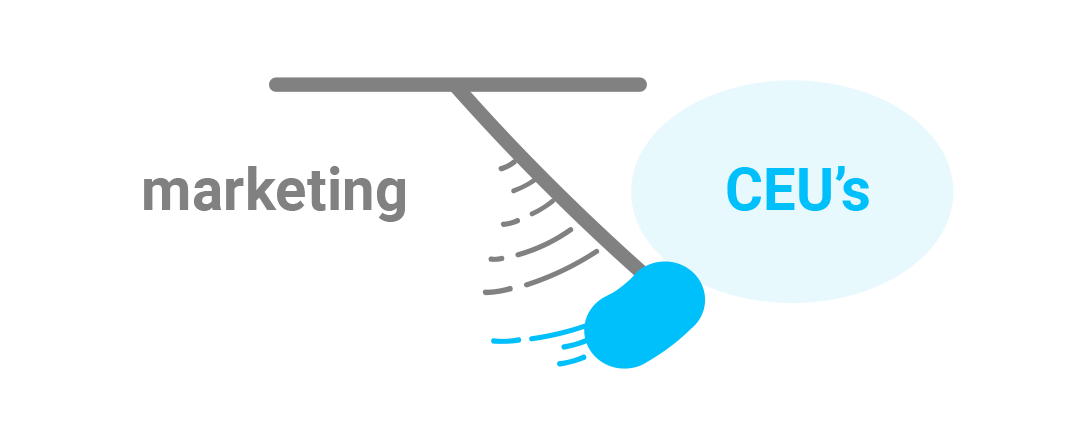There are some things about conferences we’ll never miss, like parking foibles and lousy coffee. Yet changing our environment, bonding with our peers and in-person marketing opportunities are some experiences we all looked forward to and now dearly miss.❤️

While it’s true that 2020’s conference pendulum has swung from physical and marketing heavy to digital and CEU focused, we are excited to offer a 4 Part Series to help you maximize your digital conference experience and outreach. Your blog content is the foundation for your entire online presence and is where you show your audience authentically who you are. If you only focus on the clinical value of digital conferences and neglect their marketing value, you may miss opportunities to use the information to reach someone in need.
Great marketing and quality content can scale how many lives you save.

It is vital to convey your facility’s clinical expertise and commitment to ongoing education to the outside world as a form of digital outreach. It establishes you as a “thought-leader” in the addiction treatment space amongst those finding your facility online, and will help your facility reduce the saturation of inaccurate and potentially harmful content in the blogosphere.
😎 Question: So HOW do I create these blog topics?
Answer: Journalism 101
- Who: Whose speeches or panels resonated most with you? Reach out to these speakers and get a quote or two to use in your blog post about what you learned from them! With this “who” strategy, every conference session you attended should help to generate at least 2-3 unique blog post topics.
- What: Highlight information that resonates with your clinical programming, culture, or mission. If you’re going to implement new clinical processes based on what you learned from a presentation, show that off within your blog! If what you learned during presentations reinforced your existing clinical programming strengths, talk about that too. Be specific, people seeking help want to understand exactly WHAT your expertise is. For example, if you are a trauma-informed center, writing a post about what you learned from Stefan Bate’s CCSAD panel on “Integrating Effective Trauma Care into Primary Addiction Treatment” will show readers you truly believe in destigmatizing the need for integrative treatment.
- When: Don’t be afraid to say you got the inspiration for your blog post from WHEN you acquired CEUs at a conference. Your audience will appreciate the fact that you’re attending events to become as clinically sophisticated as possible. They’ll also appreciate that this event happened recently, and you’re already sharing these relevant updates with them.
- Where: Talking about WHERE in your programming you provide the clinical aspects of what you learned during the conference is critical. It establishes trust with your readers because you can speak on how you actually utilize these techniques. This is where you need to be as specific as possible- if you provide a distress tolerance skill from Fredrick Dombrowski’s NAADAC breakout session on Dialectic Behavioral Therapy: Modifications for Co-occurring Disorders, and the reader uses it effectively, they will see you as the expert and decide your facility will be able to help them or their loved one.
- Why: Tell the world about your “why.” The reason you do what you do! If you attended a presentation that speaks to your “why,” then you now have another topic! For example, if Judy Crane’s “Loneliest Heart” CCSAD panel resonated with you and your facility has a heavy community focus, a great QA style topic would be “Why Do Some ‘Find Their Tribe’ in Recovery Faster Than Others?”
